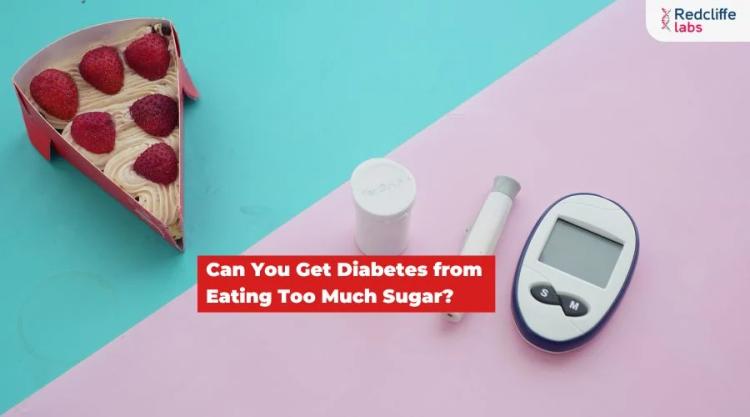Procedure for HbA1c Test: A Step-by-Step Guide for Patients

Medically Reviewed By
Dr Divya Rohra
Written By Meenakshi
on Feb 3, 2024
Last Edit Made By Meenakshi
on Jan 7, 2025

To ensure our health remains in check, we must make preventive health checkups a part of our life. One of the regular tests significant for our health is the HbA1c Test, which helps track average blood sugar levels within three months. For individuals who have diabetes or those who are at higher risk, the HbA1c Test is no less of a boon, as it provides vital insights into how well their blood sugar levels are controlled over a specific period. If you are wondering what this is, why you need it, and the test procedure, we’ll walk you through it individually.
Whether you are a diabetic, pre-diabetic, at risk, or just seeking to monitor your blood sugar levels, the HbA1c Test can help. So, are you ready? Let’s dive into the pool of knowledge for better understanding and for taking charge of your blood sugar levels.
What is the HbA1c Test?
Before jumping to understand the procedure, it is vital to understand what this test is and is used for. So, the HbA1c Test also called the Hemoglobin A1c Test, is a blood test that analyzes average blood sugar over the past two or three months. Unlike any other glucose test, it doesn’t just provide a smaller glimpse but offers a long-term view. This A1c Test helps measure the percentage of hemoglobin with glucose molecules attached. So, the test measures average blood sugar levels, but do I need this test? What are the conditions that may prompt the need for this examination? Let’s find out.
Who needs the HbA1c Test?
- Individuals With Symptoms: Individuals exhibiting general signs or symptoms suggestive of diabetes or prediabetes, including increased thirst, frequent urination, unexplained fatigue, blurry vision, unexpected weight loss, numbness or tingling, increased hunger, slow wound healing or more, you may need to get yourself tested at the earliest. This is because early diagnosis of diabetes or prediabetes may help you control the condition and manage symptoms better.
- Individuals With Risk Factors: Moreover, individuals should consider the HbA1c Test as a part of their routine health screening if they have high risks of diabetes or prediabetes.
- Pregnant Women: Lastly, pregnant women may need the test, as pregnancy can influence blood sugar levels and increase the risk for gestational diabetes, one form of diabetes.
You may need this test for:
- Long-Term Blood Sugar Monitoring: The test has a vital role in helping you keep track of any changes in your blood sugar levels, helping your healthcare practitioner make informed decisions, and suggesting preventive measures.
- Diagnose Diabetes: Moreover, you may need this test to confirm or rule out the risk for diabetes, prediabetes, or gestational diabetes, allowing early intervention to manage or prevent the condition.
- Treatment Adjustment: You may also need an HbA1c Test if you are already diagnosed with the condition, as it aids in adjusting medication or insulin dose per your health requirements, ensuring better blood sugar level management.
Getting tested may help you confirm the diabetes or assess your risks, allowing you to take better preventive measures to manage your health and minimize the likelihood of potential complications.
Also Read: If you want to know about the Importance and significance of the Hba1c Test- Diagnosis and Prognosis, give this a quick read. It will answer all your queries related to the HbA1c Test.
So, when you know the test is crucial and have concerns about its procedure, here’s a step-by-step guide to help you understand it better.
Step-By-Step Guide For The HbA1c Test Procedure:
So, your appointment is scheduled for the HbA1c Test, and now you may have queries related to its procedure – right? Scroll down to find out what will happen during the procedure.
- Understand The Test: Understanding what this test is all about and why you need it may cut half your stress and help you mentally prepare for it. Remember, it is a simple test that helps monitor average blood sugar levels.
- Fasting Or No Fasting: Unlike other blood tests, the HbA1c Test requires no dietary restrictions, and you can eat or drink normally.
- Medication Information: Before the test, you must inform your doctor or phlebotomist about any ongoing medicine or known condition, like pregnancy, known allergies, or other chronic conditions, and follow their instructions.
During the test:
- A phlebotomist will tie a band around your arm to make your vein more visible.
- They will then use an antiseptic to clean the site to prevent the risk of infection.
- A sterile needle is then inserted to collect the blood, which may cause discomfort and sting-like pain.
- The blood sample is transferred to a sterile collection tube and sent to the laboratory for analysis.
- A bandage will be applied to the punctured site to stop the bleeding and minimize the chances of complications.
These simple steps are involved in the HbA1c Blood Test Procedure. Understanding the procedure half the stress and helps one keep calm during the blood drawing time, ensuring appropriate measurements for accurate diagnosis.
If you have any queries, it is always a good idea to have an open discussion with your doctor or phlebotomist, who will guide you according to your health requirements.
These steps help you avoid inaccuracies in the test results and ensure better health management.
Reach Redcliffe Labs For Routine HbA1c Test
Are you looking for a reliable diagnostic partner to book your HbA1c Test? Redcliffe Labs is the best Omnichannel Pan India Diagnostic Service Provider. With a comprehensive range of prescribed to specialized tests, we offer everything under one roof at highly affordable rates with maximum convenience. You can book the test online and get tested from your home. So, book your HbA1c Test now.



